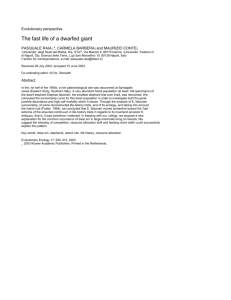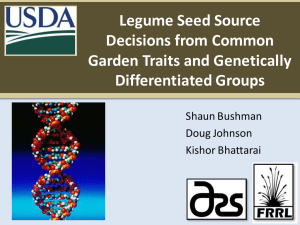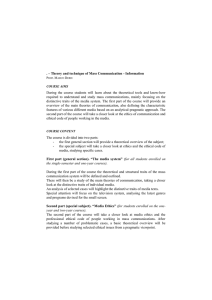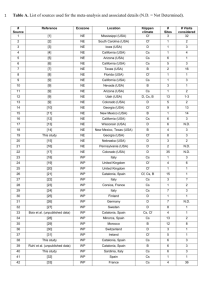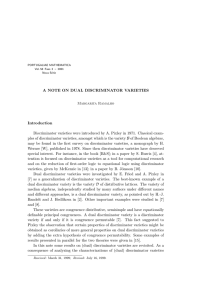FIELD STUDY OF TWO BARLEY LANDRACES OF JUMLA, NEPAL BK Baniya
advertisement
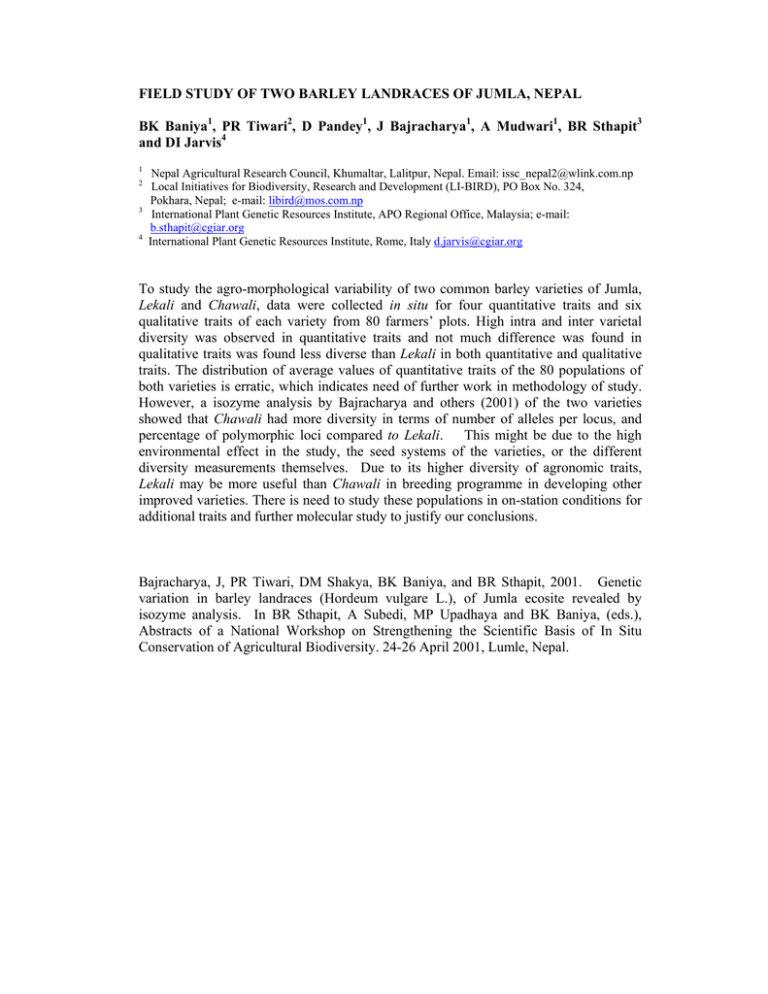
FIELD STUDY OF TWO BARLEY LANDRACES OF JUMLA, NEPAL BK Baniya1, PR Tiwari2, D Pandey1, J Bajracharya1, A Mudwari1, BR Sthapit3 and DI Jarvis4 1 2 3 4 Nepal Agricultural Research Council, Khumaltar, Lalitpur, Nepal. Email: issc_nepal2@wlink.com.np Local Initiatives for Biodiversity, Research and Development (LI-BIRD), PO Box No. 324, Pokhara, Nepal; e-mail: libird@mos.com.np International Plant Genetic Resources Institute, APO Regional Office, Malaysia; e-mail: b.sthapit@cgiar.org International Plant Genetic Resources Institute, Rome, Italy d.jarvis@cgiar.org To study the agro-morphological variability of two common barley varieties of Jumla, Lekali and Chawali, data were collected in situ for four quantitative traits and six qualitative traits of each variety from 80 farmers’ plots. High intra and inter varietal diversity was observed in quantitative traits and not much difference was found in qualitative traits was found less diverse than Lekali in both quantitative and qualitative traits. The distribution of average values of quantitative traits of the 80 populations of both varieties is erratic, which indicates need of further work in methodology of study. However, a isozyme analysis by Bajracharya and others (2001) of the two varieties showed that Chawali had more diversity in terms of number of alleles per locus, and percentage of polymorphic loci compared to Lekali. This might be due to the high environmental effect in the study, the seed systems of the varieties, or the different diversity measurements themselves. Due to its higher diversity of agronomic traits, Lekali may be more useful than Chawali in breeding programme in developing other improved varieties. There is need to study these populations in on-station conditions for additional traits and further molecular study to justify our conclusions. Bajracharya, J, PR Tiwari, DM Shakya, BK Baniya, and BR Sthapit, 2001. Genetic variation in barley landraces (Hordeum vulgare L.), of Jumla ecosite revealed by isozyme analysis. In BR Sthapit, A Subedi, MP Upadhaya and BK Baniya, (eds.), Abstracts of a National Workshop on Strengthening the Scientific Basis of In Situ Conservation of Agricultural Biodiversity. 24-26 April 2001, Lumle, Nepal.
